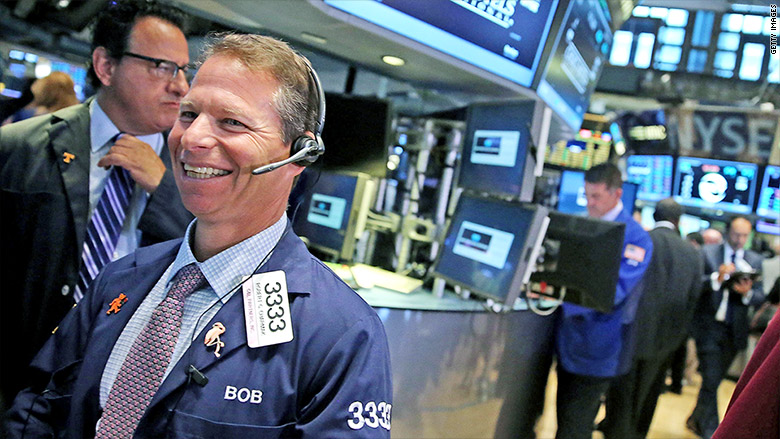
Fear is fading on Wall Street.
Volatility rippled through stock markets right out of the gate this year. On February 11, the VIX volatility index hit its highest point since the stock market's deep plunge in late August.
But now, cooler heads appear to be prevailing. The VIX is at 19, down from its 2016 high of 31. CNNMoney's Fear and Greed index is firmly in greed territory, after being on the fear side for weeks.
Three things sparked market volatility early this year: China's currency devaluation, falling oil prices and uncertainty over the Federal Reserve's rate hike plans.
"Those were all headwinds that have basically turned into tailwinds," says Art Hogan, chief market strategist at Wunderlich Securities.
Related: Who's worried about China now?
Fears over China sparking a currency war are proving to be unfounded. China's central bank had devalued its currency, the yuan, for several days in January, causing other developing countries to weaken their currencies further to compete for trade. But the race to devalue seems to be on hold for now. And lately, its government added more money into its banking system to stimulate demand.
Oil prices have rallied since mid February too. And top Fed officials have lately acknowledged that the markets might be too shaky for rate hikes now.
There's been uncertainty about the Fed's plans for rate hikes in 2016, which started the year with estimates of about 4 times this year. But, markets are expecting two at most. That disparity between the Fed and markets had some investors concerned earlier this year.
Markets are chilling out now. The Dow is up about 10% since hitting its low point for the year on February 11. Including Wednesday, there have been nine trading days in the past four weeks when the Dow didn't gain or lose much more than 100 points -- a typical benchmark for a calm day.
In the first six weeks of this year, there were only six such days when the Dow was swinging up or down by less than 100 points.
Related: Is the oil price crash over?
The question is when will volatility return. Three big central banks -- Japan, the Fed and the European Central Bank -- have meetings this week and next. The ECB's massive stimulus decision Thursday has so far not moved markets much.
China's economic slowdown remains a major concern. And oil prices have routinely proven to be unpredictable.
The market has had a good run in recent weeks and sentiment so far is positive.
"Sentiment has climbed back towards optimism," says Liz Ann Sonders, chief investment strategist at Charles Schwab. But: "There may be more downside risk on a surprise [announcement]."


